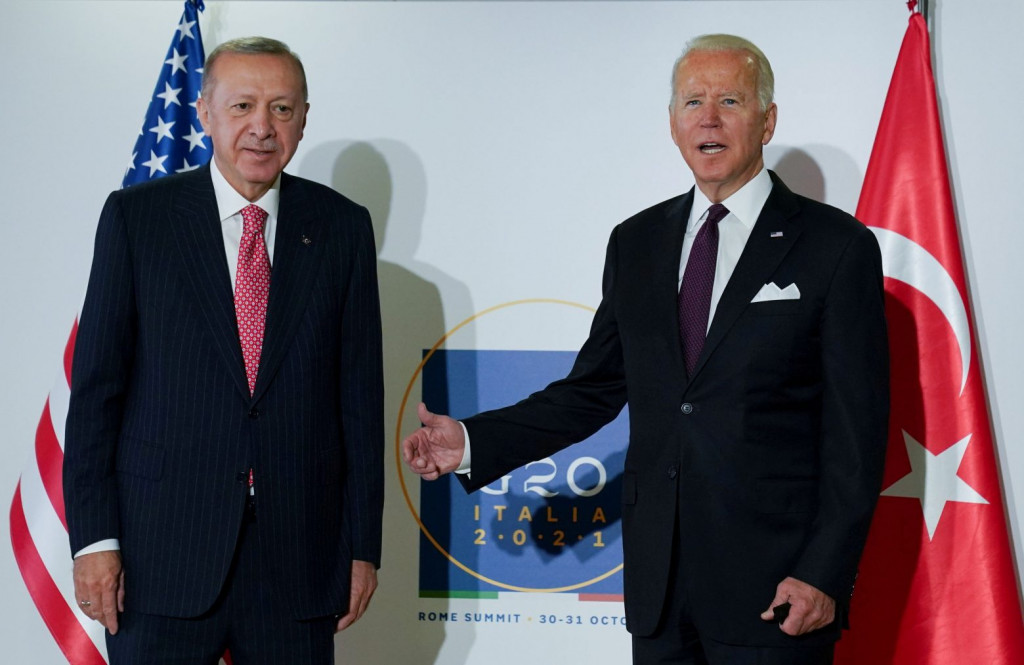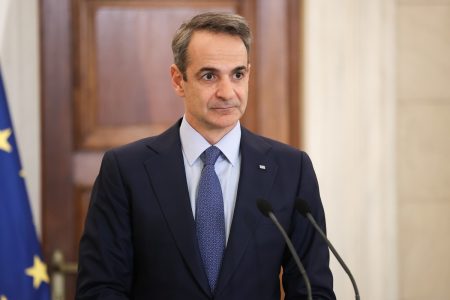By George Gilson
After months of tense bilateral US-Turkey relations with sharp public recriminations between the two leaders, US President Joe Biden and Turkish President Recep Tayyip Erdogan held talks on the sidelines of the G20 meeting in Rome today.
In the nine months since he assumed office, Biden has maintained a tough stance toward Turkey on a host of issues that have infuriated the US Congress and the American military establishment, from Ankara’s tight embrace with Moscow and its refusal to back down on the procurement of Russian S-400 missile systems, to Turkey’s military interventions in Syria and Libya and its expansionist and destabilising actions in the Eastern Mediterranean, where Turkey has positioned itself as an aggressive regional power, effectively ignoring the overarching geopolitical role of the US in the region.
Ankara’s geopolitical shift toward Moscow and the accompanying threat to the cohesion of NATO, in which Turkey has the second largest army, lies at the core of US-Turkey problems. Though Washington would like to bring Turkey back into the fold, Biden has made it plainly clear that it will not happen on Ankara’s terms.
White House Readout
The White House readout on the meeting combined the carrot and the stick – an initial conciliatory overture with a firm insistence on Washington’s positions on geopolitical disputes.
“President Biden underscored his desire to maintain constructive relations, expand areas of cooperation, and manage our disagreements effectively. He expressed appreciation for Turkey’s nearly two decades of contributions to the NATO mission in Afghanistan,” the statement read.
Though Erdogan has repeatedly sought a meeting with the US President in the nine months since he assumed office, Biden’s steadfast refusal was one of many strong signals toward Ankara that any rapprochement will happen on Washington’s terms and not based on Turkey’s pretence of being an untouchable regional power that acts unilaterally and ignores its allies.
Washington’s decision to remove Ankara from the next-generation F-35 fighter jets programme and its recent reluctance to accept Turkey’s recent alternative proposal to procure a large batch of F-16’s is indicative of the lingering big chill in bilateral ties.
Erdogan’s recent decision to expel 10 Western ambassadors, over their support for the release of a prominent political prisoner, which was promptly revoked amidst a political uproar, reflected by the fact that Erdogan is still digging in his heels in his disputes with Washington.
Defence partnership with intense US concerns
“President Biden reaffirmed our defense partnership and Turkey’s importance as a NATO Ally, but noted U.S. concerns over Turkey’s possession of the Russian S-400 missile system. He also emphasized the importance of strong democratic institutions, respect for human rights, and the rule of law for peace and prosperity,” the statement read, underlining Erdogan’s autocratic leadership and contempt for the rule of law in his country.
Areas of concern
Moreover, the readout indicated that the two leaders discussed the full list of hot button issues.
“The leaders discussed the political process in Syria, the delivery of humanitarian assistance to Afghans in need, elections in Libya, the situation in the Eastern Mediterranean, and diplomatic efforts in the South Caucasus. President Biden reaffirmed our defense partnership and Turkey’s importance as a NATO Ally, but noted U.S. concerns over Turkey’s possession of the Russian S-400 missile system. US, Turkey agree on formation of joint mechanism to strengthen, improve bilateral ties, following a meeting between countries’ presidents in Rome.’
The optimistic Turkish readout
In a series of breaking news tweets, Turkey’s government-controlled Anadolu news agency skirted deep, bilateral disputes and offered diplomatic niceties.
“US, Turkey agree on formation of joint mechanism to strengthen, improve bilateral ties, following a meeting between countries’ presidents in Rome,” the agency reported.
“During meeting in Rome, Turkish, US leaders stress importance of NATO alliance, strategic partnership, express satisfaction of mutual steps taken on climate change.”
“Turkish, US presidents discuss steps to be taken in line with common perspective to expand bilateral trade volume during their meeting.”





